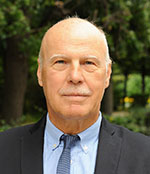Wolfgang Grisold,
Secretary General, WFN

Wolfgang Grisold
The committees of the WFN contribute greatly to the work of the WFN. The chairs are appointed by the trustees, and the committee is composed of members of the regions.
The present composition and membership can be seen on the WFN website and are listed in Table 1.
WFN Committees
- Congress
- Constitution and bylaws
- e-communications
- Education
- Finance
- Grants
- Membership
- Nominating
- Public awareness and Advocacy
- Publications
- Regional liaison
- Specialty groups
- Standards and Evaluation
The task of the committees is to work on specific issues, and within their defined task they are of great value not only for the leadership of the WFN, but to the whole organization. This new column will introduce the committees in the next issues of World Neurology, starting with the Standards and Evaluation Committee in this issue.
Standards and Evaluation Committee
The most recently appointed chair is Prof. László Vécsei, head of Neuroscience Research Group, the department of neurology, University of Szeged, Hungary. He has much experience in educational matters, nationally, within the former European Federation of Neurological societies (EFNS- now EAN) and the Danube group of neurology.
This committee receives applications for meetings and also enduring materials. In the future, there will be an increasing need to endorse also webinars and virtual meetings.
The task of the committee is to scrutinize the event/material for scientific content, quality of speakers, and also make sure that the event is independent from industry or other influences. Once the event or material is endorsed, it is allowed to bear the WFN logo, as a sign of quality, and will be announced on the WFN website.
As Continuing Medical Education (CME)/ Continuous professional development (CPD) is subject to local and national regulations, the recognition of CME /CPD needs to be made locally, by the respective responsible body.
If you are planning a meeting or any other kind of virtual or enduring material, which is in English and of interest for our WFN community, please consider to have your event/material endorsed by the WFN. The WFN is free of charge and meant as a service for neurology. Details on the endorsement process, and also downloadable material for the application are on the WFN website.
Public Awareness and Advocacy Committee
This committee is chaired by Prof. Tissa Wijnerate from Australia. Its aim is to promote and enhance brain health and the visibility of the WFN. It has successfully organized previous World Brain Days. For a summary of 2019, organized with the International Headache Society, see the webinar of World Brain Day 2019.
This year’s World Brain Day is jointly organized with the International Parkinson and Movement Disorder Society. The motto is “Move Together to End Parkinson’s Disease” and will highlight the importance of treating patients with movement disorders and also support careers. See the associated article in this issue.
COVID-19 and the WFN
The WFN has set up website space for the present COVID-19 crisis. We are all concerned about the neurological effects as well as recommendations to handle this crisis.
As guidelines vary in subdisciplines and regions and countries, we have inserted a list of the websites of the global neurology alliance (GNA) as well as the WFN specialty groups. Some of them have specific guidelines and advice on their website, or could be directly asked.
The journals are presently overwhelmed with reports and observations of neurological involvement in COVID-19, and it is difficult to select peer reviewed and high quality articles. The WFN has appointed our three WFN editors (Journal of the Neurological Sciences, John England; eNeurological Sciences, Walter Struhal; and World Neurology, Steven Lewis) to go through suggested articles and give recommendations. You will find these selected articles on our website.
The Specialty Group on the Environment has published a letter in Lancet Neurology, encouraging all societies to establish databases and registries and look at neurological effects of COVID-19 (THELANCETNEUROLOGY-D-20-00339 S1474-4422(20)30148-4.)
We are also interested in suggestions and opinions concerning our committees. Please contact us via the London office (Jade), or my email at wolfgang.Grisold@wfneurology.org. •
